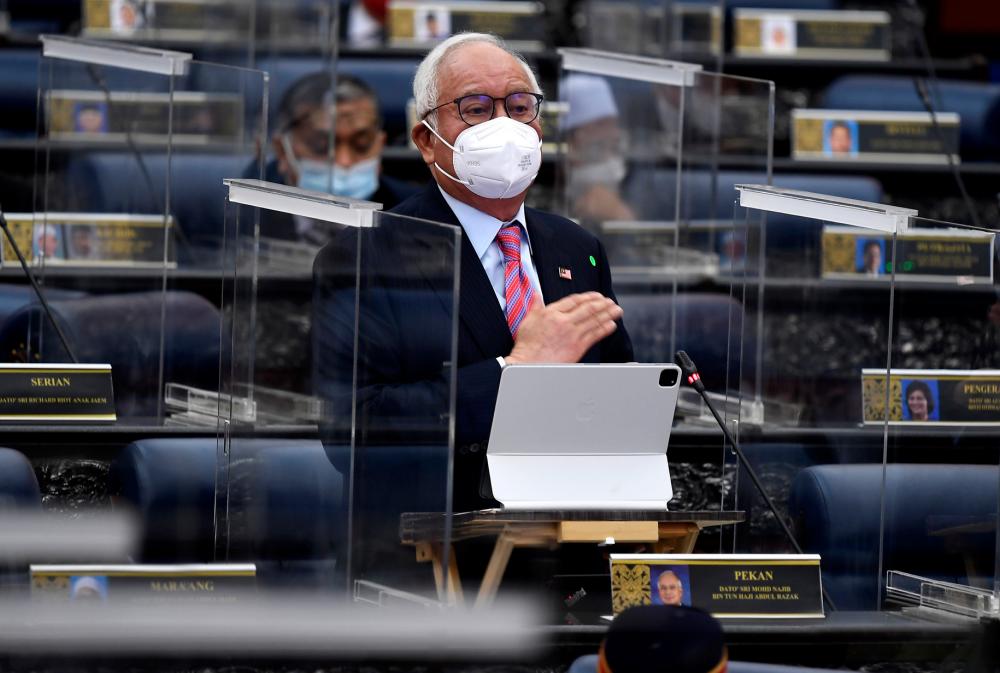KUALA LUMPUR: Former prime minister Datuk Seri Najib Razak has urged the government to reinstate the Goods and Services Tax (GST) as soon as the country recovers from the Covid-19 pandemic.
The Pekan Member of Parliament said the tax would enable Malaysia to reduce income inequality, attract foreign investments and strengthen the government’s fiscal position.
According to him, GST can also target the “shadow economy” worth RM300 billion a year, which had escaped paying taxes previously.
“GST had caused the shadow economy to shrink from 25 per cent to 10 per cent. There was a serious leakage before the implementation of GST, which is why GST is beneficial to the nation and the people,” he said during the debate on the 12th Malaysia Plan (12MP) in the Dewan Rakyat today.
He explained that the revenue from GST could be distributed to the low-income groups, especially the bottom 40 per cent (B40) and middle 40 per cent (M40) groups, in the form of cash assistance which would be much greater than the amount of GST paid by them.
According to him, this is because GST is a consumption tax whereby the more you spend, the higher you would pay.
Commenting further on strengthening the government’s finances, he said the GST system was more equitable and progressive, which could provide room for the government to reduce the corporate tax and personal income tax rates.
Currently, Najib said, the corporate tax imposed in Malaysia was among the highest at 24 per cent compared to other ASEAN countries such as Singapore (17 per cent), Thailand (20 per cent), Indonesia (22 per cent), and Vietnam (20 per cent).
He also noted that corporate taxes in the United States had also been reduced to 21 per cent.
Apart from that, Najib said that as the 12MP was tabled at the end of 2021 for the 2021-2025 period following the Covid-19 pandemic, it should be reviewed so that it would be more accurate and based on the current situation.
Tony Pua Kiam Wee (DAP-Damansara) shared a similar view.
He said that although more than 90 per cent of the vision and mission outlined in the 12MP was appropriate and should be adopted, its implementation should be refined and modified so that the country could achieve the desired goals.
In his view, the attention given by the 12MP to strengthen and develop the socio-economy of Sabah and Sarawak is appropriate given both states’ potential to achieve the highest growth in the country.
He expressed hope that the government would review the country’s investment policy in increasing the focus on high-tech investment so as not to rely on low-skilled labour, aimed at energising the economy of Sabah and Sarawak and promoting their industry.
“Large investors such as Intel, Microsoft and Amazon cannot go to Sabah and Sarawak due to the lack of skilled workers and unsuitable ecosystem.
“In fact, activity in the manufacturing sector is almost non-existent and this has caused many to migrate to Peninsular Malaysia for better employment opportunities,” he explained.- Bernama










